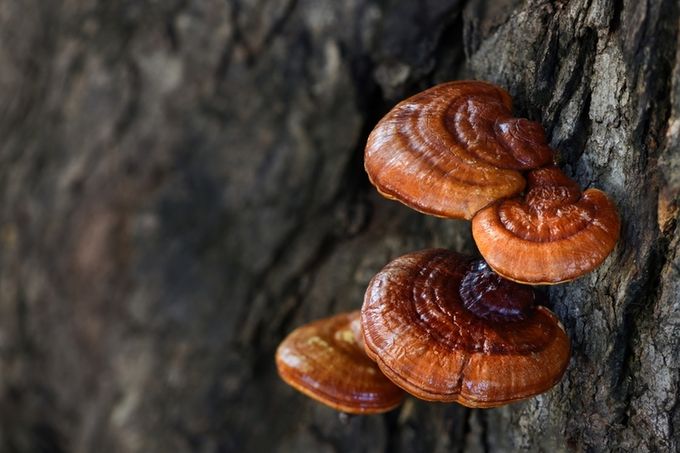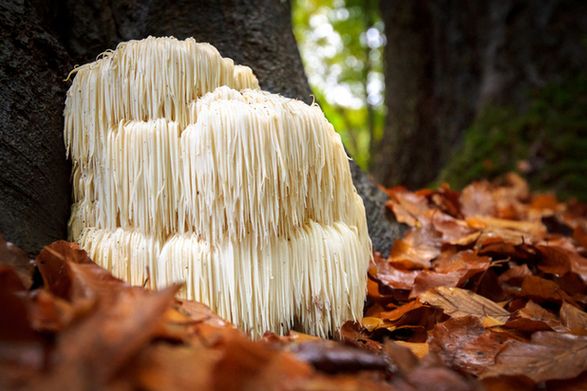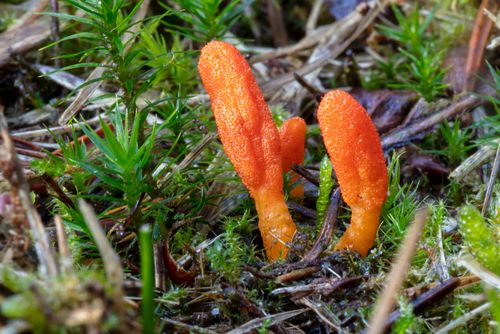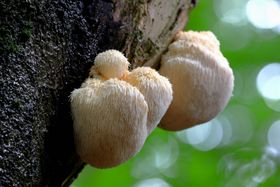5 Functional Mushrooms to Help With Chronic Joint Pain—and How to Use Them
Chronic joint pain can be difficult to treat. Many of the traditional pain killers don't fully relieve joint pain, particularly pain from autoimmune diseases. There are a variety of alternative and adjunct ways to help with chronic joint pain. These include at least five separate types of mycotherapy (medicinal mushrooms) than can help to alleviate joint pain making movement easier daily.
Updated September 20, 2023.
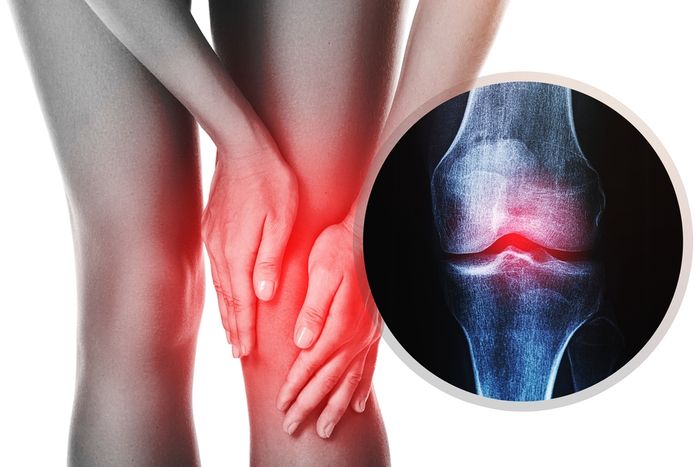
Chronic joint pain can be caused by a variety of conditions including autoimmune diseases, consequences of aging, accidents causing mechanical damage, and non-inflammatory (usually age-related) arthritis (osteoarthritis).
Functional mushrooms may have a variety of health benefits including immune support, decreasing inflammation, helping to balance blood sugar, increase nerve growth factor (leading to a healthier brain and nervous system), decreasing pain, and increasing energy. (1)(2)(3)(4).
Finding a treatment that will reduce chronic joint pain to a manageable level is not an easy task, and many of the pharmaceutical medications carry a high risk of unwanted side effects. Adjunct treatments may make it far easier to manage ongoing pain, and functional mushrooms have shown promise in this area. That being said, keep reading to discover the five best functional mushrooms for relieving chronic joint pain.
What Is Chronic Joint Pain?
Joint pain is defined as "chronic" if it lasts more than 12 weeks. It can affect a few joints, all the joints in the body, or even move through a variety of joints (e.g. affecting different joints on different days).
Causes include:
- Fibromyalgia
- Rheumatoid, psoriatic, and osteoarthritis
- Ehler-Danois syndrome
- Systemic lupus
- Other autoimmune diseases
1. Reishi
Reishi mushrooms may help to combat pain through two avenues:
Additionally, Reishi mushrooms can be extremely beneficial for improving sleep quality, which can indirectly reduce pain levels.
How to Use Reishi Mushroom
Reishi mushrooms are usually made into tea or tincture, but can also be taken as a supplement. Their thick woody texture makes them unsuitable for eating in most circumstances.
» Learn more: Health Benefits and Side Effects of Reishi Mushrooms
2. Lion's Mane
. Inflammation is often a factor in chronic joint pain and research demonstrates that lowering overall inflammation tends to alleviate pain and other symptoms.
Additionally, some chronic joint pain is a result of neuropathic pain (pain caused by nervous system issues) instead of actual joint issues. Since Lion's Mane appears to promote nerve growth factor, it could reduce the effects of neuropathic pain.
How to Use Lion's Mane
Lion's Mane is often eaten due to its pleasant taste, but it can also be brewed into a tea or taken as a tincture or supplement capsule/powder.
» Learn more: The Benefits of Lion's Mane and the Side Effects of Lion's Mane
3. Cordyceps
Research suggests that the effects of Cordyceps on inflammation are not just remedial but also preventative (7), which could be beneficial for autoimmune diseases like rheumatoid arthritis, systemic lupus, and Crohn's disease. As such, Cordyceps may help to inhibit inflammation build-up as well as reduce existing inflammation, which could help to reduce pain.
How to Use Cordyceps
There are many ways to use Cordyceps. It can be taken as a powder in food, eaten in its natural state, or even as a tincture, tea, or supplement. It has an umami flavour with sweet nutty undertones that many regard as pleasant, making it a suitable choice for cooking or even to give a health and taste boost to cereals and smoothies.
» Learn more: Benefits of Cordyceps
4. Chaga
an integral part of managing chronic joint pain.
How to Use Chaga
Like Reishi, Chaga tastes bitter and has a woody fibrous texture that makes it unpleasant in foods. Instead, it can be mixed in powder form in coffee or tea without detracting too much from the taste. It can also be taken in tincture or supplement form.
» Learn more: Benefits of Chaga and Side Effects of Chaga
5. King Trumpet
King Trumpet mushrooms are the largest member of the Oyster mushroom family. It has high levels of ergothioneine, a substance that gives it extreme antioxidant properties that may be beneficial in reducing chronic joint pain (8).
How to Use King Trumpet
Belonging to the Oyster mushroom family, King trumpet mushrooms can be a great addition to your daily cooking, though they can also be powdered for combining with smoothies or hot drinks, and even taken in tincture or supplement form.
Mix Your Mushrooms for the Best Results
Chronic joint pain is often due to inflammatory causes, making it more difficult to treat effectively. Based on current research, functional mushrooms seem to offer numerous benefits when dealing with inflammation. However, if you're struggling to decide which is the best, then you need not worry as there's nothing stopping you from mixing them and getting the specific benefits of each. Read our M2CBD formula for more info.
As always, it is best to consult a doctor if you are unsure which ones to incorporate and at what dosages. This is especially true if you are taking conventional medications as it is essential to ensure there are no detrimental interactions and that the treatments add to each other rather than reduce their efficacy.
» Ready to start your well-being journey? Browse our store for the best products catered to your needs.





